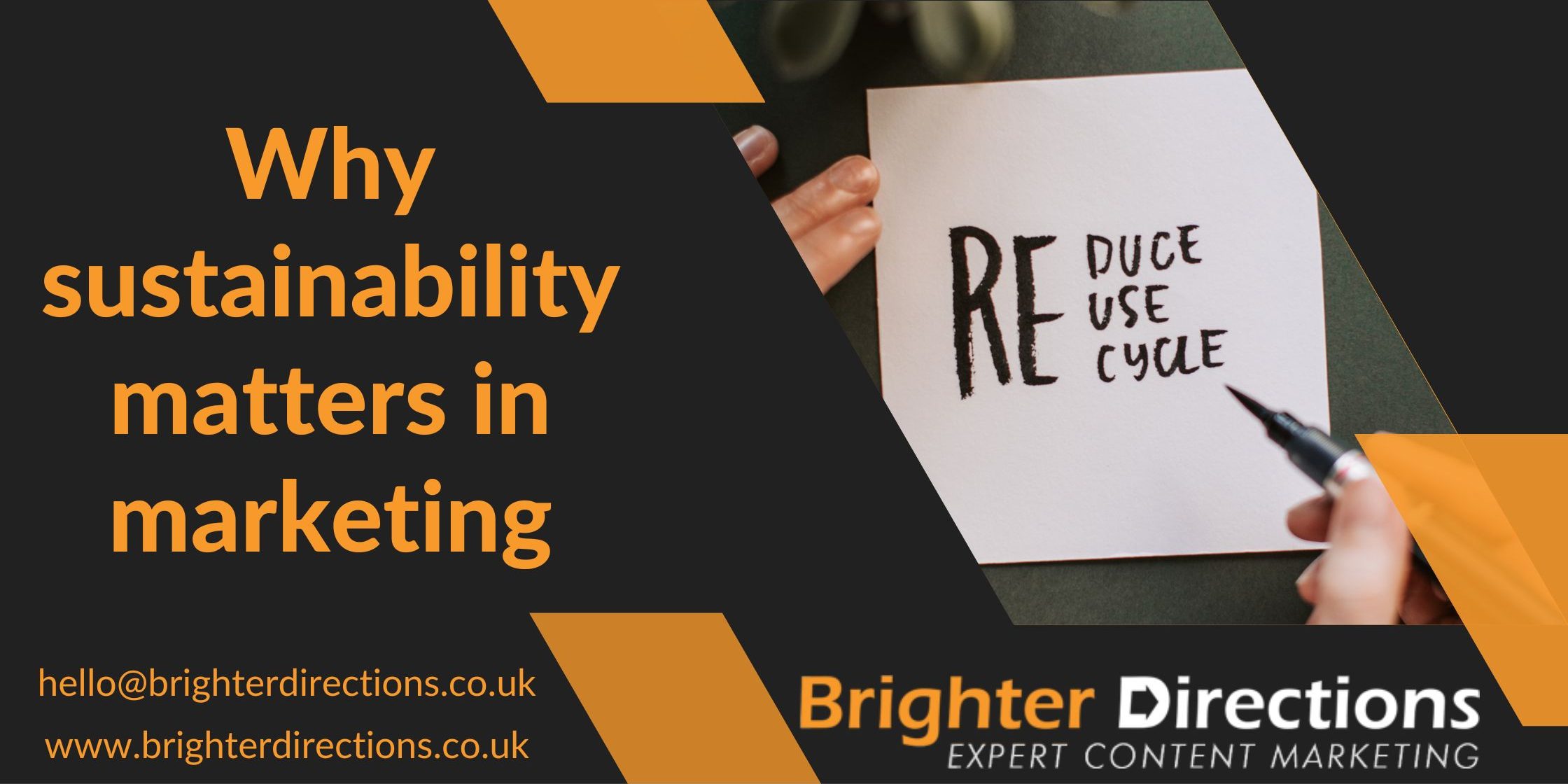In today’s fast-paced and ever-evolving business landscape, sustainability has emerged as a critical factor in marketing success. Gone are the days when merely offering competitive prices and high-quality products was enough to win customer’s hearts. As society becomes increasingly passionate about climate change and other pressing social issues, consumers now seek out businesses that align with their values. Investors, too, are showing a preference for organisations committed to sustainable business practices. In this blog post, we’ll delve into why sustainability matters in marketing activities and how it can benefit both your brand and the planet.
The Evolution of Sustainable Marketing
Sustainable marketing is an extension of the broader concept of Environmental, Social, and Governance (ESG) practices. It evolved from the early days of “green marketing,” which primarily focused on environmental concerns. Green marketing emerged in the 1970s as environmental issues gained prominence due to growing pollution concerns. At that time, governments began implementing environmental regulations to encourage responsible business practices. Some organisations embraced green marketing as a way to build trust with environmentally conscious consumers, although many still considered it a niche approach.
The 1990s saw increased media coverage of climate issues, sparking a renewed interest in green marketing. Some businesses initiated campaigns highlighting their recycling efforts and energy-efficient products, however sustainability efforts were often seen as optional and costly endeavours.
A pivotal moment in the history of sustainable marketing occurred in 2004 when the United Nations called on governments, investors, and financial analysts to place a stronger emphasis on ESG practices. This led to a surge in ESG initiatives and sustainable marketing efforts by organisations. As consumers became more aware of environmental and social issues, sustainable marketing became a mainstream business practice.
Why Sustainable Marketing Matters
Increases Brand Loyalty
One of the most significant benefits of engaging in sustainable marketing is its ability to foster brand loyalty. Consumers today want to support brands that share their values, and sustainable marketing helps organisations build a strong connection with environmentally and socially conscious customers. By aligning your brand with a larger mission, such as combating climate change or promoting diversity and inclusion, you can increase customer retention rates. Loyal customers are more likely to make frequent purchases, contributing to long-term business success.
Improves Employee Engagement
Sustainable marketing goes beyond pleasing customers; it also resonates with employees. When organisations invest in ESG practices and prioritise sustainability, employees feel a greater sense of purpose and engagement in their work. Employees who value sustainability are more likely to find fulfilment in working for companies that share their values. Additionally, social sustainability policies, such as flexible paid time-off policies, can enhance employee satisfaction and reduce turnover.
Supports Regulatory Compliance
The world of business is increasingly subject to environmental and social regulations. Engaging in sustainable marketing encourages organisations to address their environmental and social impacts proactively. For instance, reducing greenhouse gas emissions and disclosing emission levels can help to comply with evolving ESG regulations. Governments worldwide are implementing stricter reporting requirements, making it essential for organisations to incorporate sustainability into their business practices.
Increases Profits
Contrary to the misconception that sustainability initiatives are financial constraints, they can boost profits. Sustainable marketing campaigns can focus on cost-saving measures, such as reducing energy and water consumption. Implementing energy-efficient technologies and processes can lead to lower operational costs over time. Moreover, organisations with high ESG ratings often attract more funding from investors, creating opportunities for growth and increased profitability.
Embrace Sustainable Marketing
Incorporating sustainability into your marketing activities is no longer a choice; it’s a necessity in today’s conscious consumer and investor landscape. However, it’s crucial to avoid “greenwashing” – making false claims about sustainability efforts. Seek guidance from sustainability consultants to ensure your sustainable marketing campaigns are effective and authentic. By doing so, you can leverage sustainability to not only enhance your brand but also contribute to a more sustainable and prosperous future for all. If you would like help and advice on your sustainability reports and marketing strategy, please contact us today for a free discovery call at hello@brighterdirections.co.uk







